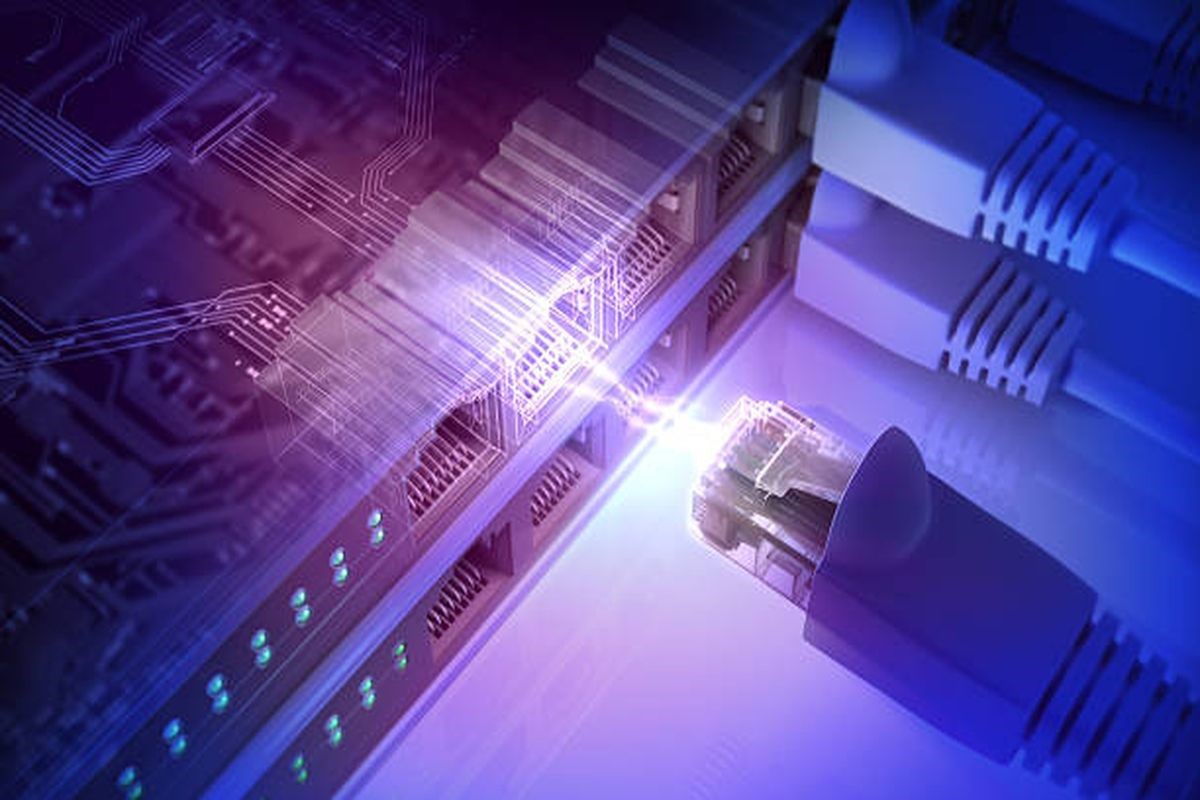A Lightning node (LN) is a piece of software that integrates with the main blockchain network and the Lightning Network itself.
By description, a node is software that links to the blockchain network and exchanges the most updated blockchain data. Its primary goal is to review and track all transactions on the blockchain network, making it highly immutable, decentralized, and transparent.
Various nodes exist in every blockchain network. For example, the Light node and Full node are the key Bitcoin (BTC) nodes. On the other hand, specialized nodes called miners solve mathematical puzzles and add new transactions to a block of transactions aiming to earn transaction fees and block rewards.
Nevertheless, full Bitcoin nodes authenticate transactions but they do not collect the block rewards. But, there are other reasons why the users need to run a complete node, such as contributing to the general security of the Bitcoin network and enhancing transaction security, which is vital in case you plan to execute many BTC transactions daily.
Evidently, a Lightning node (LN) integrates with Litecoin (LTC), Bitcoin Prime, and the Lightning Network, itself. Notably, the Lightning Network’s nodes somehow differ from those on the Bitcoin network in different ways, with the most notable being the way they validate transactions.
For instance, the Bitcoin network needs nodes to authenticate every transaction on the blockchain, but the Lightning Network just needs nodes to validate transactions that link with it directly.
Related: Lightning Network Traffic Analysis Raises Questions Over Fees and Privacy
What are the advantages that come with running a Lightning node? To learn the benefits that come with LN technology, it is advisable to have at least one active node. Irrespective of their network, anyone can run a node assisted by decentralization. The total number of public lightning nodes and merchants’ payments over the Lightning Network is always increasing.
How Lightning Node Works Within The Lightning Network
The Lightning Network is powered by individual payment channels between parties linked to executing transactions. The LN is the result of the interconnections that exist between many payment mechanisms.
It is a second-layer solution that is built on top of the Bitcoin blockchain to resolve issues like the long transaction confirmation times. Notably, an unstructured network surrounds the blockchain and the payments are made using channels that are ad hoc peer-to-peer links. Any number of payments can be sent within a channel.
The nodes that are operated by corporations or individuals route payments to ensure that the network is running. Any amount of Bitcoin needs to be locked up in a payments channel before the Lightning Network is used. Until that channel is closed, it can be spent across the Lightning node.
A long alphanumeric string of digits mostly represented by QR codes (an invoice) is developed by the users who want to receive a transaction. The person paying only scans the invoice with their Lightning Wallet and confirms the payment by offering a digital signature.
The payment confirmation is immediately sent to the original creator of the request and the transaction is completed within a few seconds. Payments are not plagued by long wait periods and excessive fees since they are not created on the Bitcoin blockchain.
It means that micropayments of as low as one satoshi can be sent using the Lightning node. After using this network, one can leave by closing the channel to utilize their BTC on the primary Bitcoin blockchain.
Hence, it is possible to make money running a lightning node. But, the profit may not be expressed in satoshis. It is possible to earn some BTC by forwarding transactions originating from other Lightning nodes via your node.
But, always ensure that your node is financed by sending Bitcoin to your node wallet address and creating channels with other nodes so you can start earning Bitcoin by actively participating in the Bitcoin Lightning Network.
Related: Why This Dev Built a ‘Centralized Ethereum’ on Top of Bitcoin’s Lightning Network
How To Run A Bitcoin Lightning Node
The fundamentals of running a Bitcoin Lightning node include an amount of BTC to fund the Lightning channel, fiat money to acquire the hardware equipment, and a Lightning-compatible wallet. Since Lightning nodes are non-mining nodes, you are not mining Bitcoin but the nodes are important to validating Bitcoin blocks.
They are mostly known as Validation Nodes with Umbrel and MyNode being the two most popular specialized hardware options for them. Using a few simple steps, you can readily set up a new myNode device.
For starters, download the myNode image compatible with your device and follow the instructions on the download page to put it on an SD card. Then, turn on the device and connect an external SSD. You are directed to type in your product key. You may choose the option in case you are using the Community Edition. Otherwise, you will have to type the product key that was sent to you via email or one that is available at the bottom of the device.
The device starts synchronizing the Bitcoin Blockchain. Subject to the device that you are using and network capacity, that process may take several days. The web interface of myNode devices indicates the current synchronization status. The device remains connected with the Bitcoin network and displays the main application page after the first sync is completed.
Once the myNode device is ready, the primary myNode page appears. You may connect the device using its hostname or IP address.
Use the default credentials as Username: admin and password and then change the password to securely use the platform. Then, set up a Lightning wallet on your myNode. Head to the main myNode page and select the “Lightning Wallet” button to set up your wallet. Once you have finished that, click “Create Wallet” to get access to your seed phrase.
Related: What Are Lightning Wallets Doing to Help Onboard New Users?
The phrase is important and anybody who knows it can access the funds in the wallet. Write a note of the sentence as a backup and keep it private. Click ‘Continue’ and re-enter the seed phrase on the next page to guarantee that your backup was generated correctly. Then, click on ‘Create’ to make your wallet.
You are redirected to the main Lightning page if the phrase that you entered is correct. On this page, the Lightning wallet starts syncing and setting itself up and it should be ready within a few minutes.
How To Operate A Profitable Lightning Node
Lightning nodes seek the most efficient way of executing transactions. You need to set the node’s charge low enough to become affordable for the node to be lucrative. On the other hand, the charge should be high enough that it becomes an attractive way of earning passive crypto income.
Operating a node is more like art since special attention and care are needed for every channel. Whenever you are assessing traffic flow, fees, rebalancing, and which channels to open and close, you have to consider how traffic moves and how much it costs to move that traffic by reviewing a macro view over time. How do you make passive income with these nodes?
Adjust your channels to feed the traffic efficiently. Nonetheless, until traffic flows both ways, avoid keeping a channel perfectly balanced. For instance, in case of traffic moves in one direction, as is the case on many channels, then satoshis need to be continuously pushed or pulled back to feed that traffic.
Furthermore, it is always great to review routes during rebalancing. You can find where things need to be moved for a low cost, connected to whom, and where you can create a channel linked to one of the connecting nodes to minimize fees and maximize routing potential.
Creating a Tippin.me account on social media to accept tips through the Bitcoin Lightning Network is a great way to make money using the Lightning Network. You can also some sats each time a person transacts using your payment channel by supporting the quickly growing Lightning Network.
For the video creators, Light Tube lets them publish videos in return for BTC through the Lightning Network. Users who want to see a high-definition video need to pay the set 100 satoshis fee. On the flip side, uploaders may use LN payments to redeem money earned through their videos.
How much does it cost to operate a Lightning node? Making money is not the sole motivation for running the nodes since the profit is just a few pennies per month. In general, the equipment needed to run a node costs $200 to $400.
Lightning Network Shortcomings
Routing fees are among the critical Lightning Network issues needed to transfer payments between channels. Nonetheless, nodes do not get any reward for facilitating the payments. Furthermore, illegal channel closure, meaning one party closes the channel while the other is unaware, resulting in offline transaction risk is another issue that affects LN.
To receive and transmit payments on Bitcoin’s Lightning Network, nodes have to be online, which makes their private keys susceptible to thefts, hacks, and scams. Nevertheless, cold storage helps in preventing the loss of private keys and users’ funds.
Additionally, participants may fail to retrieve their funds quickly enough when payment channels become overloaded as a result of a malicious attack. Thus, before you invest in a project, conduct extensive background checks like assessing various blockchains and analyzing tokens. These checks ensure that you get the best deal.











